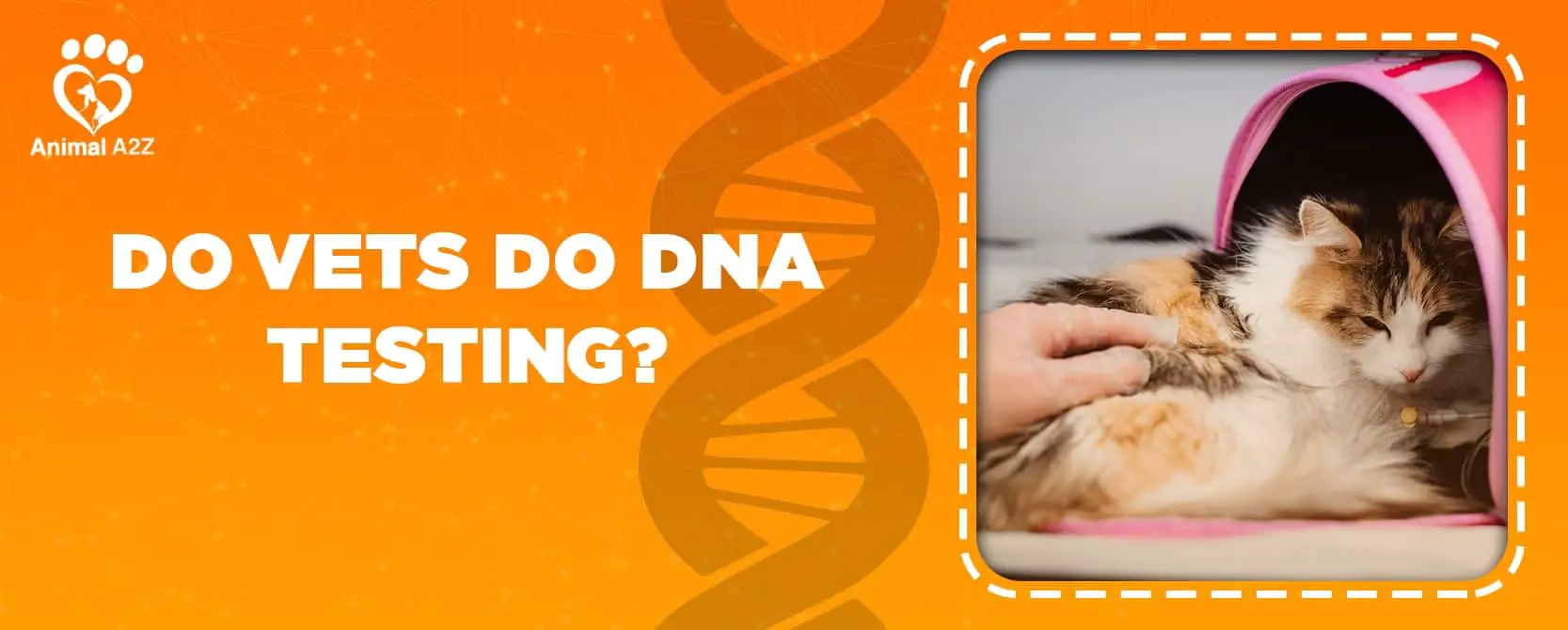DNA testing is currently available for domestic animals with the help of new technology. DNA testing is an important tool for veterinarians, breeders, and pet owners to gain insights into the animal’s health conditions and inherited traits.
Table of Contents
When do vets do DNA test?
Vets can do DNA testing if they are trained to work in a cat DNA testing laboratory. However, if you consult with your vet regarding your cats’ breed and health, they may suggest a feline DNA test for your cat for a more precise result.
You can easily do a DNA test at home
BasePaws Pets DNA test
|
Importance of DNA testing
DNA carries genetic instruction for the growth and function of living organisms. Studying and identifying changes in their genetic makeup can lessen the risk of hereditary health conditions. It can also help vets and pet owners make better decisions for changing the treatment, proper precautions, and health care for every pet.
DNA test results also provide a sense of relief from the uncertainties about your cat’s origins and informs the owners to help properly manage their pets’ health care. DNA tests can also eliminate the need for unnecessary consultations and screenings with a clinical veterinarian.
The ways you can get a cat DNA test.
DNA is important to vets
Every DNA archive that is given to veterinary medical teaching hospitals is an important resource for identifying underlying genes and mapping hereditary diseases. It helps them provide accurate identification of a certain species and decreases the risk of disease for every animal. Each genetic makeup result contributes unique information to researchers that are continuously studying animals.
Read this too: How accurate a test is.
Veterinarian for feline buddies
A feline veterinarian is not all about their love for cats. They studied and underwent rigorous training to become veterinarians and ensure that they can give the utmost care and the highest quality of medical care for cats. Each day is a challenge and exciting in caring for their beloved furry animals while staying alert for potential emergency situations.
Feline veterinarians are practitioners who specialize in giving comprehensive health care for cats. They are veterinarians who diagnose and treat the health problems of cats. They usually work in small clinics and animal hospitals exclusively for cats. They provide vaccinations, medications, and perform essential health exams like cleaning, giving birth, and other cat health procedures.
Improved cat DNA tests
An animal DNA test is a type of genetic testing with the means of determining a cat’s genetic condition. However, feline DNA testing is still in the developing phase compared to DNA testing on dogs.
The test results from cat DNA testing are not a hundred percent accurate. A bigger database is still needed to provide more precise and accurate results in the future.
Even though a cat’s appearance and health conditions can be influenced by genetic and environmental influences, knowing the cat’s genetic traits can show hereditary diseases and trait differences because of a simple and complex changes in their DNA. Their genes are also a way to understand their personalities and habits.
Cat DNA testing helps identify the cat’s physical appearance markers, parental breed, and hereditary diseases that might affect their health condition.
Knowing these things from the cat’s genes is significant in taking proper treatment and precautions for cats. It is also highly recommended to consult a veterinarian if your cat’s genetic results show him prone to a certain disease.
How the test is done
Feline DNA tests are similar to human DNA tests. A swab of cat DNA test is collected by rubbing inside the cat’s cheeks. A friendly approach to this required action will make it comfortable and painless for the cats. Make sure to also respects your cat’s space and time for doing their usual activities before you swab their cheeks. For example, don’t try it when she’s eating.
Provided with the cotton swabs from their cats, the samples must be sent to the company to handle the DNA testing. The lab will then analyze the cat’s DNA traits and structure, collect data, and summarize the test results.
The company will be responsible for sending the owner a detailed report after the testing. This allows the DNA testing company to develop their own database and provide the owners and their respective veterinarians’ information.
The benefits of cat DNA tests
Knowing a cat’s parental breed and background story can greatly help avoid the risk of life-threatening disease to your cats. If the cat was seen to have a high-risk health issue, solving it as soon as possible can reduce the number of other cats developing the same disorder. This can also help veterinarians through diagnostic and be able to treat them in the future.
Genetic testing for cats can also deliver accuracy since it can test for specific genetic conditions, depending on the appropriate service needed. Knowing about their past is also exciting to figure out. Learning the story behind your feline friend’s roots creates a better connection between you and your beloved pet.
Frequently asked questions about cat DNA tests:
Are cat DNA tests worth it?
DNA testing satisfies curiosity in knowing your cat’s identity and background. It also helps you understand their medical conditions and personalities. Their hereditary medical conditions and treatments are greatly improved after taking the cat DNA test. Having the capability to avoid risk for a lovely pet is never an unworthy decision.
How accurate is cat DNA testing?
Cat DNA testing is still in its development phase. It needs to expand its database to be able to better analyze results. It is not a hundred percent accurate, but it can still show you a definite family history and potential hereditary diseases. Some genetic traits are discovered, which can help breeders to accurately determine the breed of your cat.
How are cat DNA tests different from other genetic tests?
DNA testing for cats is not that different from other genetic tests in terms of results. It is just focused on the genetic makeup of cats. Simultaneously, their data is saved in the database to achieve more discoveries about feline genes so hopefully these tests can provide more information and accuracy in the future as the database grows.
Can a vet specialize in cats?
Yes, some veterinarians are specifically trained for feline care. They work at a cat-only clinic which specializes in providing healthcare for cats. They studied and trained to become feline experts. Still, they take educational courses simultaneously as a process of continuous learning to expand their knowledge on cat health and more.
Final thoughts
DNA testing is as an important resource in the field of veterinary medications. Cat DNA testing still can’t provide a hundred percent accuracy for genetic traits and hereditary diseases, but it’s improving. Knowing the genes of your cat is beneficial to veterinarians, breeders, and especially their owners. It is an important process to learn more about your cute feline buddy and keep them healthy.



